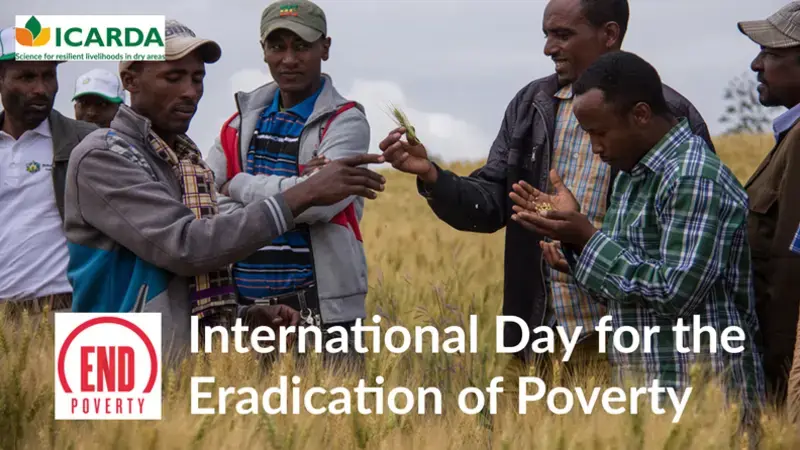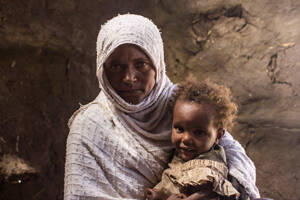Eradicating poverty through science – consulting farmers early on

By Dr. Girma T. Kassie
Under an intensifying climate crisis, rural farming communities living in extreme poverty and vulnerable drylands struggle more than ever to make a living, held back by severely limited funds, diminishing resources, and ever-fewer options at their disposal. People living at the sharp end of climate change and poverty are the first to understand how well new technologies and approaches work. Yet, their experience regularly goes unnoticed and undervalued.
To deliver research for development (R4D) solutions that work, we must involve farmers right from the start to understand their needs, challenges, and priorities. For example, the adoption by farmers of innovations such as improved germplasms depends on their different climate adapted features and the demand for them by farmers’ both as growers and consumers. If we overlook farmers' vital experience and needs at early stage, and exclude them in the decision-making process in any technology, we risk providing keys to the wrong doors.
Today, as we observe International Day for the Eradication of Poverty (IDEP), we examine a study that investigated farmers' preferences and willingness to pay (WTP) for different climate-change related traits such of wheat in Ethiopia. It was conducted in a major wheat-growing district known as the most drought-prone and food insecure in the region and 303 smallholder farm households were included through focus group discussion, face-to-face interviews at mother-baby wheat trial sites conducted in 2015, and consultation with wheat breeders.
Among others, the results revealed that farmers are most willing to pay for yellow rust resistance and frost resistance, and this was nearly ten times the value they are willing to pay for a significant increase in grain yield per hectare. Considering the seemingly obvious financial benefits of better yielding wheat, the far higher WTP on yellow rust resistance may have been a surprise to a research team unfamiliar to the agricultural landscape. However, yellow rust is a devastating disease present in the region, causing a yield loss of up to 34%. Because such a fact could be undervalued or missed by a less informed team, this study outcome alone clearly highlights the value of consulting farmers to help guide high level research decisions on which interventions to develop and target.
The weight farmers attach to climate-related traits of wheat also shows the importance farmers implicitly give to the climatic factors they must consider in their wheat production. Through careful understanding and embedding farmers' preferences for and the implicit value they attach to the different traits in our research, we can significantly improve the effectiveness of their climate change adaptation strategies. Carefully mapping preferences, challenges, and needs of rural dryland farmers are step one of ICARDA's people-centered research program. Doing so is the best, perhaps the only, way to increase the likelihood of developing truly successful and widely adopted solutions that align with real world farming strategies that build resilient livelihoods and eradicate poverty.
---
Girma T. Kassie, the author of the study, is a Senior Agricultural Market Economist at ICARDA


